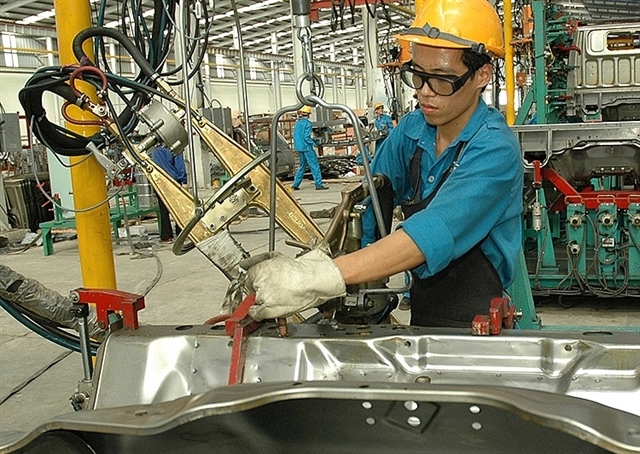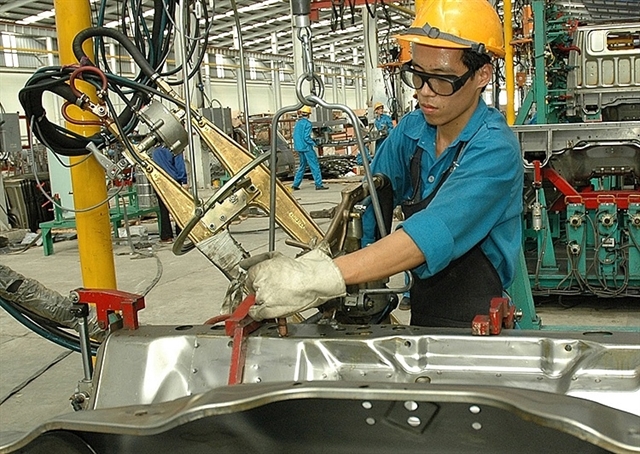[ad_1]

HÀ NỘI — The Ministry of Industry and Trade (MoIT) will focus on removing difficulties in industrial sectors in the second half of this year, especially the processing and manufacturing industry, to expand production and business.
It plans to work closely with foreign-invested firms such as Samsung and Toyota and search for local producers to make raw materials and components to replace imports.
The ministry has suggested localities develop material production regions, industrial parks and economic zones to ensure they have raw materials for domestic production.
It will also propose preferential policies for the textile and footwear industries as well as other sectors that have suffered greatly from the COVID-19 pandemic. It will build incentive mechanisms for the production of materials for those sectors.
The MoIT predicts that in the second half of the year, the domestic electronics industry will still be greatly affected by the pandemic that could reduce demand for electronic products in the US and Europe.
Samsung Vietnam is expected to reduce its export target to about US$45.5 billion, lower than the export value of $51.38 billion in 2019.
However, the ministry observes that many countries worldwide have highly appreciated Việt Nam’s disease control. This is considered an important factor to attract more foreign investment into Việt Nam after the pandemic ends. That will help Việt Nam boost growth in production and exports in the future.
The MoIT reported the index of industrial production (IIP) in June increased by 10.3 per cent compared to the previous month. Of which, the IIP rose by 13 per cent in the processing and manufacturing sector, 6.5 per cent in the electricity production and distribution, and 4.4 per cent in water supply and wastewater treatment compared to the same period in 2019.
Meanwhile, the index of the mining industry in June decreased by 3.7 per cent from a year prior.
During the first six months of this year, the national IIP increased by 2.8 per cent compared to the same period last year. The index surged by 4.6 per cent for the processing and manufacturing industry and 2 per cent for the electricity production and distribution.
There were many difficulties in importing material from China in the first six months, especially in the electronic sector, the ministry said, but with a reasonable balance of production and business, the electronic sector gained growth in the IIP and exports compared to the same period of 2019.
The IIP for electronic products, computers and optical products in June increased by 29.3 per cent over the previous month and by 21.7 per cent over the same period last year.
This index for the first six months rose by 9.8 per cent year-on-year. It was higher than the growth rate of 3.5 per cent in the first six months of 2019. — VNS
[ad_2]
Source link
